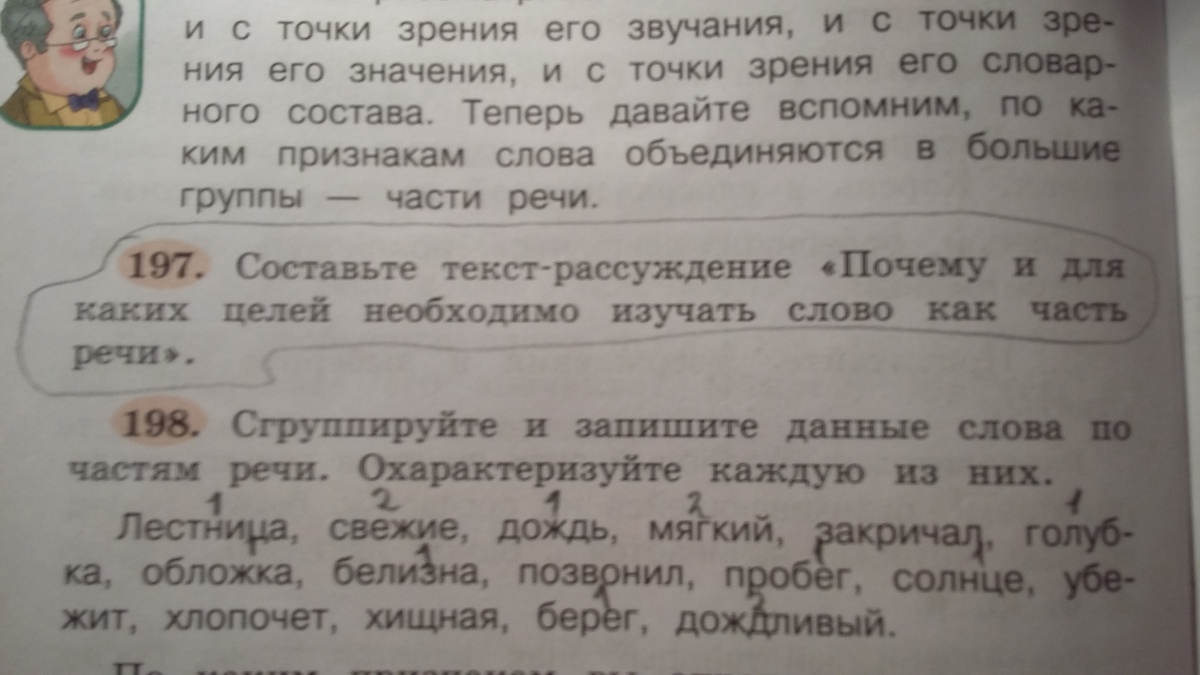Предмет: Русский язык,
автор: polinar6528
Помогите с упр.197
Составте текст рассуждение "Почему и для
Приложения:

polinar6528:
посмотрите на картинку
Ответы
Автор ответа:
4
Все слова объединяются в разные группы. Слова каждой из таких групп имеют общие признаки и правила написания и употребления в речи. Поэтому так важно научиться правильно выделять эти группы. Эти группы называются частями речи, то есть части речи - это группы слов, которые имеют общее значение и общие признаки и отвечают на одинаковые вопросы. Выделяют следующие части речи: 1. имя существительное; 2. имя прилагательное; 3. имя числительное; 4. местоимение; 5. глагол;6. наречие; 7. предлог; 8. союз; 9. частица; 10. междометие; 11. причастие; 12. деепричастие; Таким образом, от знания частей речи зависит письменная грамотность человека, а так же знание частей речи формирует у человека пунктуационную грамотность, грамотную правильную речь, правильное речевое оформление высказывания, что влияет на логичность, точность, выразительность мысли, на содержание высказывания.
Похожие вопросы
Предмет: Русский язык,
автор: темыч4
Предмет: Русский язык,
автор: kokokorzun
Предмет: Английский язык,
автор: sprotopopov1
Предмет: Математика,
автор: mubinaodilova